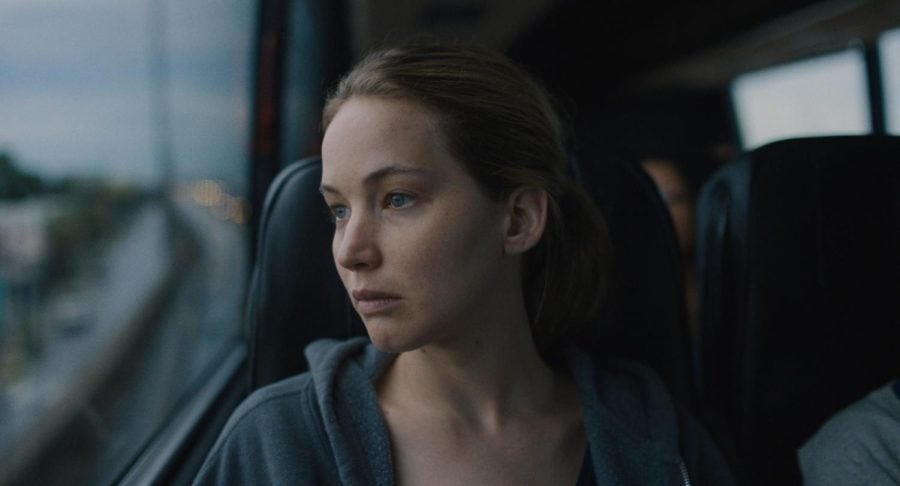Reel Thoughts: Jennifer Lawrence and Brian Tyree Henry transform ‘Causeway’ into a riveting narrative of trauma and trust
The A24 film “Causeway” will be released on Apple TV+ come Nov. 4.
October 18, 2022
This article contains spoilers.
“Causeway,” an A24 film starring Jennifer Lawrence and Brian Tyree Henry, marks the feature debut of director Lila Neugebauer.
Though this is her first feature film, Neugebauer has made waves for her directorial work in theater, which includes Edward Albee’s “At Home at the Zoo,” and the 2018 Tony-nominated revival of Kenneth Lonergan’s “The Waverly Gallery.”
Premiering on Apple TV+ on Nov. 4, “Causeway” is an intimate portrait of trauma. The film is a character study following one woman’s return to her life in New Orleans after a deadly explosion in Afghanistan.
Lawrence plays the principal character, Lynsey, with a palpable brokenness and quiet despair that’s both guarded and vulnerable. When she meets James (Brian Tyree Henry), a gritty mechanic, the two develop a friendship as fervid as it is devastating.
James is an amputee who lost his leg and his family in a car accident. He’s a character both protected and imprisoned by the walls of New Orleans and his lifelong memories of the city.
When we first meet James, he’s hopeful and approachable. There’s an optimism in his gravelly voice which, as the film progresses, breaks down the mask Henry creates to reveal the haunting pain and grief underneath.
He’s rooted in the city, a juxtaposition to Lynsey, who wants nothing more than to leave New Orleans and redeploy with the military.
Lynsey’s desire to escape is due to her family life, trapped with a narcissistic mother (Linda Emond) and incarcerated brother (Russell Harvard), who she watched destroy his own life through drug addiction.
In the pain of its characters, “Causeway” provides the groundwork for refined qualities and layered facets that build up plot as well as ameliorate its exploration of hurt and humanity.
Intricate details intertwine with shared trauma, forming a budding relationship between two damaged people. The heartbreaking impact of these lost souls wanting and needing human connection in the midst of their pain is something Lynsey and James seldom reveal through words, but rather through the nuances of character.
The sprawling setting of New Orleans isn’t developed through traditional tourist destinations. Instead, Neugebauer frames the city through private spaces that elicit psychological inferences. We understand that this place is a home, yet a place where Lynsey does not feel at home.
After focusing on getting off her medication and escaping to redeploy with the military, Lynsey realizes that she can do all those things. But whether she should is a different question — a more subtle shading that forces her to grow.
Lynsey ultimately leaves. And Lynsey ultimately stays.
A soundtrack flowing with New Orleans blues provides the lyrics “Oh, I’ve just got to get away,” the second the film fades to a black screen. These seven words provide a glinting metaphor that embodies how Lynsey leaves her family home but stays in New Orleans. For James. And for his friendship.
The film is a tapestry of subtext strengthened by deliberate performances and Neugebauer’s cinematic subtleties.
“Causeway” has the look and feel of an indie film, yet its emotional tone and filmmaking decisions offer something entirely different, bringing to the surface the kind of silent sensitivity that is typically found only in theater.
Lawrence and Henry’s acting is evocative but not overdone — a measured reticence of genre that grapples with the journeys of broken people in profoundly beautiful ways.
Email: andresbuenahora2024@u.northwestern.edu
Twitter: @andresbuena01
Related Stories:
— Reel Thoughts: ‘Euphoria’ season two proves the show is brilliant, but not for everyone
— Reel Thoughts: ‘Morbius’ is a mess, but an entertaining mess at that



